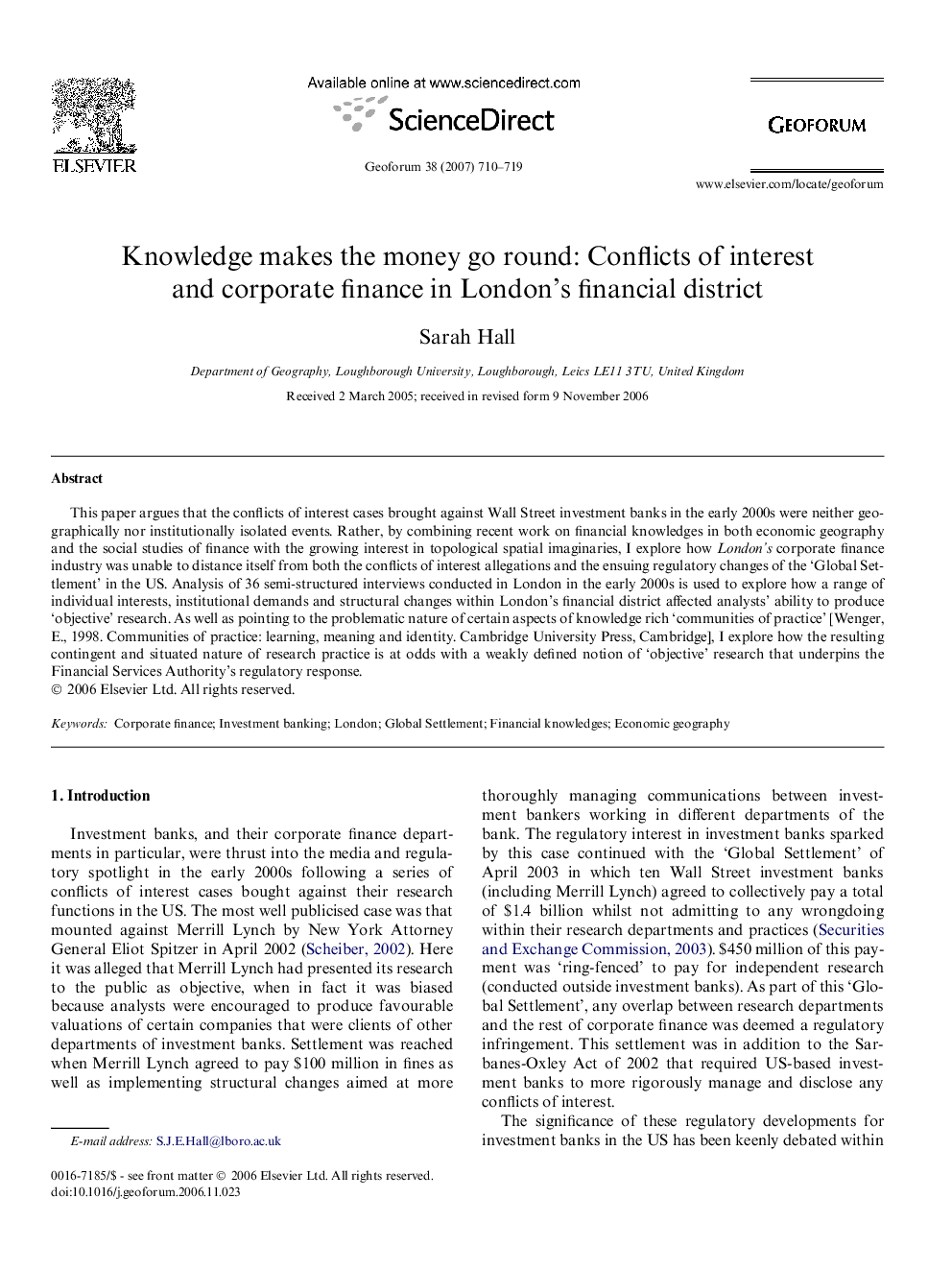| Article ID | Journal | Published Year | Pages | File Type |
|---|---|---|---|---|
| 5075198 | Geoforum | 2007 | 10 Pages |
Abstract
This paper argues that the conflicts of interest cases brought against Wall Street investment banks in the early 2000s were neither geographically nor institutionally isolated events. Rather, by combining recent work on financial knowledges in both economic geography and the social studies of finance with the growing interest in topological spatial imaginaries, I explore how London's corporate finance industry was unable to distance itself from both the conflicts of interest allegations and the ensuing regulatory changes of the 'Global Settlement' in the US. Analysis of 36 semi-structured interviews conducted in London in the early 2000s is used to explore how a range of individual interests, institutional demands and structural changes within London's financial district affected analysts' ability to produce 'objective' research. As well as pointing to the problematic nature of certain aspects of knowledge rich 'communities of practice' [Wenger, E., 1998. Communities of practice: learning, meaning and identity. Cambridge University Press, Cambridge], I explore how the resulting contingent and situated nature of research practice is at odds with a weakly defined notion of 'objective' research that underpins the Financial Services Authority's regulatory response.
Related Topics
Social Sciences and Humanities
Economics, Econometrics and Finance
Economics and Econometrics
Authors
Sarah Hall,
